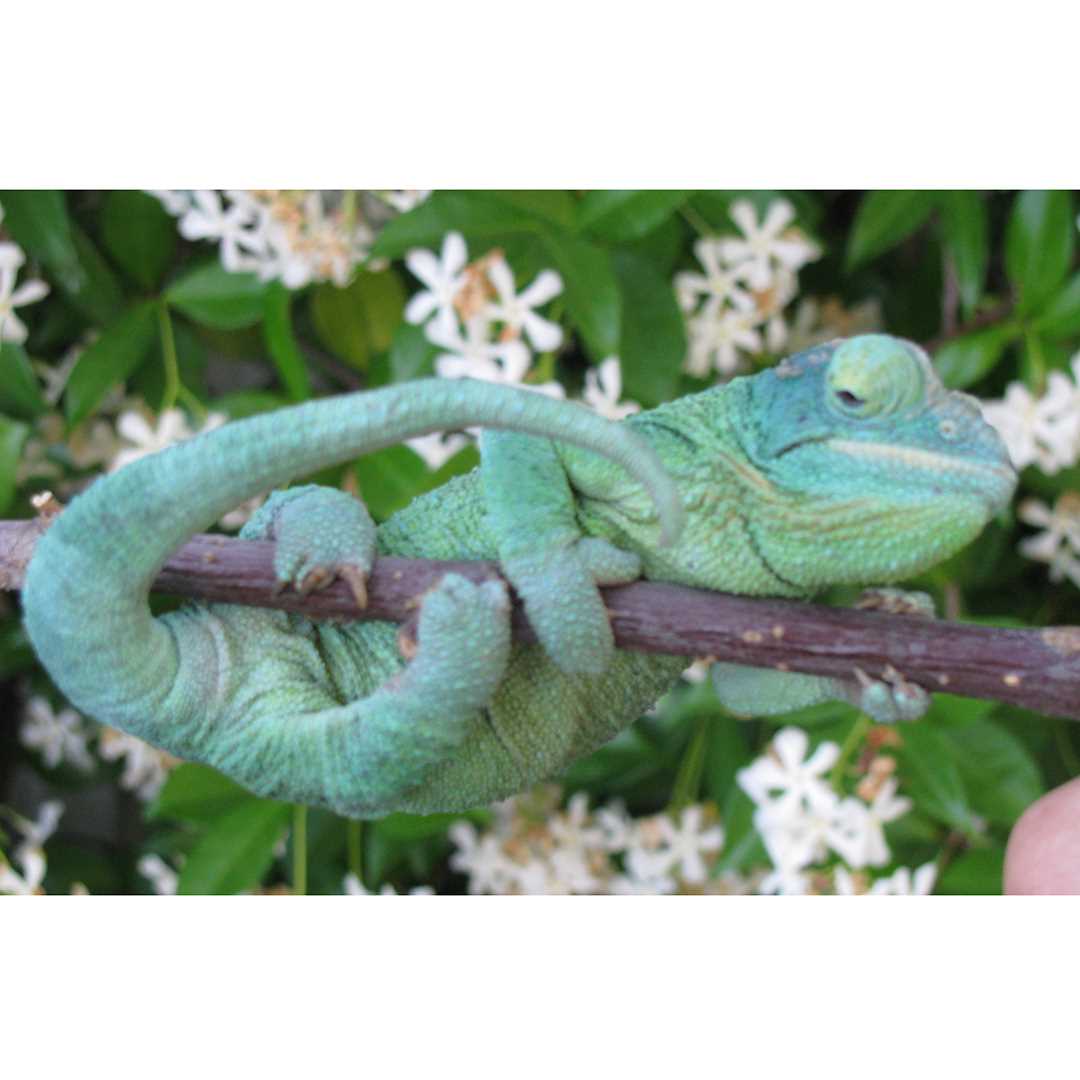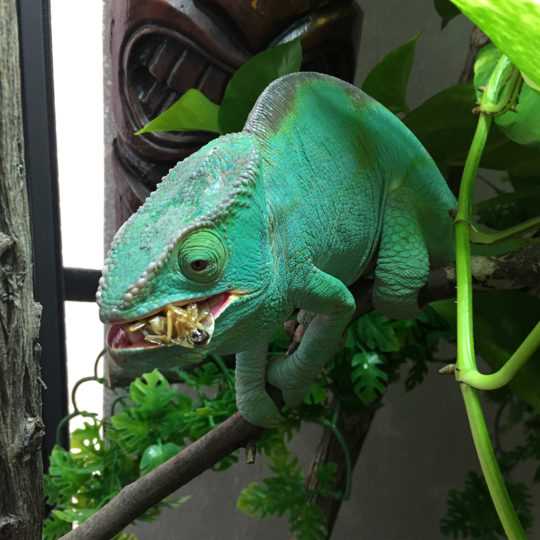Another reason why your chameleon may not be eating is illness. Chameleons can be susceptible to various health issues, such as respiratory infections or parasites. If you notice any changes in your chameleon’s behavior, such as lethargy or a lack of appetite, it’s crucial to seek veterinary care. A veterinarian specializing in exotic pets will be able to diagnose and treat any underlying health problems.
Lastly, your chameleon’s diet may be the reason why it is not eating. Chameleons have specific dietary requirements, and it’s essential to provide them with a varied and balanced diet. They primarily eat insects, such as crickets and mealworms, but they also need a source of vitamins and minerals. Consider adding gut-loaded insects or vitamin supplements to your chameleon’s diet to ensure they are receiving all the necessary nutrients.
Reasons behind Your Chameleon’s Decreased Appetite
1. Stress
Chameleons can be sensitive creatures, and stress is one of the common reasons for a decreased appetite. Factors such as changes in their environment, handling by humans, improper enclosure setup, or the presence of other pets can cause stress in chameleons and lead to a loss of appetite. It is essential to create a calm and stable environment for your chameleon to help alleviate stress and encourage normal eating habits.
2. Incorrect Temperature and Lighting
Temperature and lighting are crucial for a chameleon’s overall well-being and appetite. Inadequate basking temperatures or incorrect UVB lighting can interfere with the chameleon’s metabolism and digestion, leading to a reduced appetite. Ensure that your chameleon’s enclosure provides the appropriate temperature gradient and proper UVB lighting to support its natural needs.
3. Improper Diet
A chameleon’s diet should consist primarily of live insects and occasionally supplemented with fruits and vegetables. Feeding an improper diet or using low-quality feeder insects can result in reduced appetite. Ensure that the insects you offer are of appropriate size and variety to provide your chameleon with the necessary nutrients. It is also important to gut-load and dust the insects with a calcium supplement to ensure optimal nutrition for your chameleon.
4. Illness or Parasites
Health issues or parasites can significantly impact a chameleon’s appetite. Infections, digestive disorders, or the presence of internal parasites can cause discomfort and reduce the desire to eat. If you suspect that your chameleon’s decreased appetite is due to an underlying health issue, it is advisable to consult a veterinarian who specializes in reptiles for proper diagnosis and treatment.
5. Breeding Season
By addressing the underlying reasons behind your chameleon’s decreased appetite, you can help improve its eating habits and overall well-being. Observing your chameleon’s behavior, making appropriate changes to its environment and diet, and seeking professional advice when needed will contribute to a healthy and thriving chameleon.
Health Issues Affecting Your Chameleon’s Appetite
Dental Problems: Another common cause of reduced appetite in chameleons is dental problems. Chameleons have unique teeth that continuously grow throughout their lives. If their teeth become overgrown or develop other dental issues, it can make it difficult for them to eat properly. Signs of dental problems can include drooling, reluctance to eat, or visible abnormalities in the mouth. A veterinarian with reptile experience can help address any dental issues and provide appropriate treatment.
Metabolic Bone Disease: Metabolic bone disease (MBD) is a common issue in chameleons caused by calcium and vitamin D deficiencies. MBD can lead to weak bones, muscle tremors, and loss of appetite. Ensuring your chameleon has a proper diet and adequate access to UVB lighting can help prevent MBD. If you suspect MBD, consulting a veterinarian is crucial to provide the necessary treatment and make dietary adjustments.
Stress: Chameleons are highly sensitive reptiles, and stress can have a significant impact on their appetite. Changes in their environment, such as relocation or the presence of new pets, can cause stress and lead to a decreased appetite. Providing a calm and stable environment, minimizing stressors, and offering proper hiding places can help alleviate stress and encourage healthier eating habits.
If your chameleon is not eating, it’s vital to assess its health and seek appropriate veterinary care. Identifying and addressing health issues promptly can help ensure your chameleon’s well-being and restore its appetite.
Environmental Factors Contributing to Your Chameleon’s Reduced Appetite
Temperature and Humidity
One of the primary reasons why your chameleon may not be eating is because the temperature and humidity levels in its enclosure are not suitable. Chameleons are ectothermic creatures, which means they rely on their environment to regulate their body temperature. If the temperature is too low, your chameleon may become sluggish and lose its appetite. On the other hand, if the temperature is too high, your chameleon may become stressed and refuse to eat.
Similarly, inadequate humidity levels can also affect your chameleon’s appetite. Chameleons require a certain level of humidity in their habitat to stay hydrated and facilitate the shedding of their skin. If the humidity is too low, your chameleon may become dehydrated and lose its appetite.
Enclosure Size and Setup
The size and setup of your chameleon’s enclosure can also play a role in its decreased appetite. Chameleons are arboreal reptiles, meaning they spend the majority of their time in trees. Therefore, it is crucial to provide them with a spacious enclosure that has plenty of vertical space for climbing and perching. A cramped or poorly designed enclosure can cause stress and anxiety in your chameleon, leading to a loss of appetite.
In addition, the placement of food and water dishes within the enclosure is also important. Make sure these items are easily accessible to your chameleon and placed in areas where it feels comfortable. If the dishes are difficult to reach or in a location that makes your chameleon feel exposed, it may be reluctant to eat.
Noise and Disturbances

By addressing these environmental factors, you can help create a more suitable and stress-free environment for your chameleon, which will ultimately encourage it to eat. Remember to monitor the temperature, humidity, enclosure size, and setup, as well as minimize noise and disturbances in the chameleon’s habitat. With a little effort, you can help your chameleon regain its appetite and ensure its overall health and happiness.
Behavioral Changes Impacting Your Chameleon’s Eating Habits
Stress

One of the main reasons why your chameleon is not eating could be due to stress. Chameleons are sensitive creatures and any changes in their environment can cause them stress. This includes changes in their enclosure, such as adding new decorations or rearranging their habitat. Additionally, loud noises or frequent handling can also stress out your chameleon, leading to a decreased appetite.
Lack of Hideaways
Chameleons are solitary creatures and need plenty of hideaways in their enclosure. If there are limited hiding spots, your chameleon may feel exposed and vulnerable, which can cause stress and subsequently affect its eating habits. Make sure to provide plenty of branches, plants, and other decorations in the enclosure to create a secure environment for your chameleon.
Furthermore, if there are other animals in the vicinity, such as dogs or cats, it can make your chameleon feel threatened and prevent it from eating. Ensure that the chameleon’s enclosure is located in a quiet area away from any potential predators.
Temperature and Lighting
Illness or Injury
If your chameleon is not eating and displaying other unusual behaviors, it could be an indication of an underlying health issue or injury. Respiratory infections, parasites, metabolic bone disease, and mouth infections are common health problems that can affect a chameleon’s appetite. If you suspect that your chameleon is ill or injured, it is best to consult a veterinarian with experience in exotic pet care.

I’m Lena Adams—a product of an unconventional upbringing in the African wilderness. My father, a daring explorer of African wildlife, sparked my fascination with reptiles, a passion that intertwined with the tragic loss of my mother during an expedition, leaving an indelible mark on my life. Driven to understand the creatures that captivated my parents, I embarked on my journey, sharing insights about reptiles, frogs, and lizards on my website. Through my explorations and conservation efforts, I honour my family’s legacy while seeking connections—to the creatures, nature, and the mother whose presence I yearn to understand.
